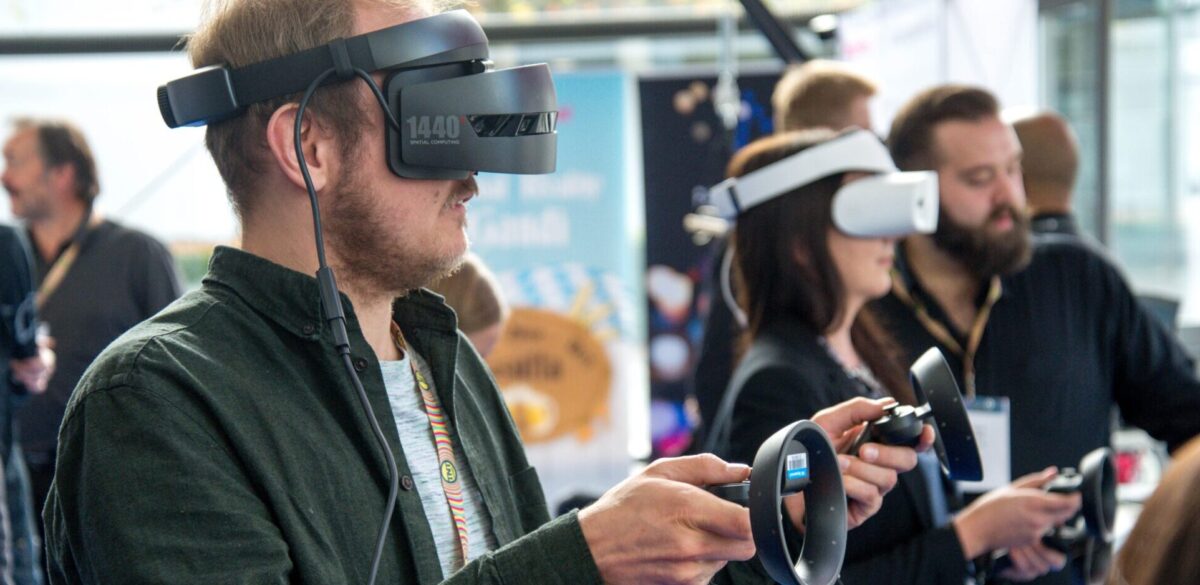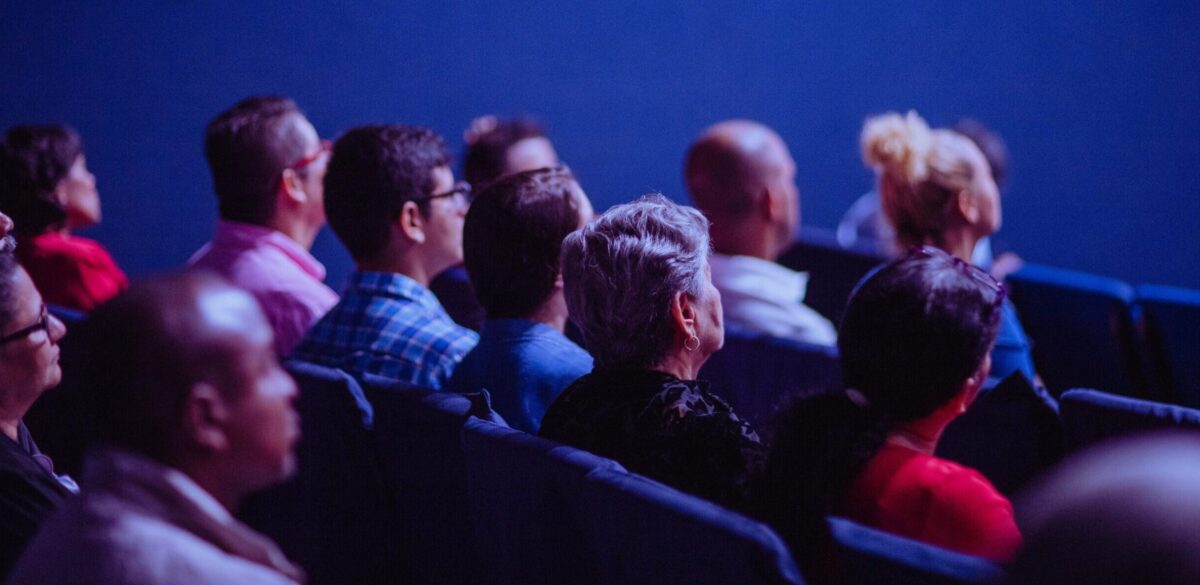As an event professional, it can be all too easy to get lost in the details.
Logistics, ticket sales, and tight timelines can fill up your list of priorities…fast. But it’s important to remember that your speakers can be your greatest asset when it comes to the overall success of your event.
Speakers are usually happy to promote an event. But if they have to work too hard to help spread the word, your event could fall to the bottom of their to-do list.
Simplifying the process and equipping your speakers with the right tools to promote your event will not only boost exposure, but will help to fill seats—a mutually beneficial outcome!
In this post, we’ll explore 6 tried-and-true strategies to make event promotion simple for your speakers. Event management technology is your BFF in the process. Let’s get into it.
Why Invest in Speaker Relations?
Prioritizing speaker relations is crucial for corporate event planners looking to deliver an exceptional experience.
First, your speakers are the heart and soul of your event. You create a win-win scenario by equipping them with the tools, guidance, and platforms to effectively promote your event. Your speakers gain valuable exposure and establish themselves as thought leaders. In turn, your event benefits from their amplified reach and credibility!
Further, cultivating strong speaker relations fosters a sense of community and loyalty. Your event gains a positive reputation—making it a coveted opportunity for industry experts and thought leaders.
Remember, your speakers are your brand ambassadors. Investing in their success is an investment in the long-term growth and reputation of your events program.
6 Strategies to Encourage Speakers to Promote Your Event
Don’t pull your hair out trying to get speakers to promote your event. Here are 6 ways to make event promotion easier for your speakers:
- Make your speakers the stars of your event
Everyone appreciates proper recognition, from the newest speaker to the most established industry personality.
Shine the spotlight on your speakers by prominently featuring their headshot, bio, and topic on your event website.
Leverage the following marketing channels to showcase your amazing speakers and pump up your promotion efforts:
- Paid advertising
- Press releases
- Industry mailers
- Social media posts
- Company blog posts
- Email blasts
Remember to collect the social media handles of your speakers during the planning process so you can tag them in your posts. This is the easiest way to encourage them to share your carefully-crafted event messaging without having to write the captions themselves!
Pro tip: Prepare a media kit for each speaker well in advance of the event. This kit should include visual content in different formats that include the speaker’s headshot, key event details, appropriate hashtags and social media handles, and your event branding.
- Invest marketing dollars to promote your speakers
To truly amplify your speaker lineup, you need to leverage paid promotion strategies. From social media advertising to influencer collaborations, these tactics can stretch your marketing dollars for maximum impact.
Consider investing in targeted Meta ads highlighting your top speakers’ expertise and accomplishments. For B2B audiences, LinkedIn Sponsored Content is another great option. You could also partner with industry influencers to cross-promote through sponsored posts and affiliate codes.
At INBOUND 2022, for example, HubSpot allocated significant ad spend towards promoting its lineup of heavyweights like Barack Obama and Viola Davis.
Don’t let your lineup go unnoticed! Strategic paid promotion increases your reach beyond your existing followers.
- Provide speakers with engaging content to use
Provide your speakers with shareable, eye-catching content in all the right formats for sharing on social media. (This is where preparing a media kit comes in handy.)
Even better, partner up with speakers to create content together! Consider going live together on socials to do a “meet the expert” session or run a pre-conference Q&A period.
You could also ask your speakers to guest-write blog posts about their topic to give attendees a taste of what’s to come. These posts will come in handy for adding value to your email marketing campaigns.
To set your speakers up for success, make sure they have access to the appropriate hashtags you’d like them to use as well as correct social media handles (including sponsors, if applicable).
- Supply each speaker with a customized promo code
Leverage your speakers’ platforms to boost event registration.
Your speakers have already built trust and loyalty with their audience. Make it easy for them to promote your event to their fanbase, friends, and family with a customized promo code.
This code could offer a small discount for event tickets, or even offer a limited 2-for-1 deal. This will not only provide your speakers with a friendly way to self-promote, but it’ll also provide you with a way to track the source of ticket purchases!
The key is to make sure the offer truly appeals to the speaker’s audience. Don’t hesitate to ask speakers for their input on what they think their audience will appreciate the most.
(P.S. Make sure to supply your speakers with a few discretionary tickets to gift to fans, friends, or family. Everyone appreciates a friendly audience!)
- Ghostwrite your speakers’ promotional posts
Let’s be real: your speakers already have a lot on their plate, especially if they’ve been in the game for a while.
Instead of quietly hoping that your speakers will say the right thing, why not equip them for success with pre-written content?
Speakers will be more likely to share if the posts are pre-written and easily shareable. We recommend preparing a series of sample cut-and-paste social media captions in addition to the media kit we mentioned above. Be sure to include event hashtag(s), sponsor handles, and ticket purchase links.
Ghostwriting posts for your speakers makes sure all content they share is on-brand and aligned with your overall marketing strategy.
Pro tip: Depending on the speaker, they may already have a promotional team that creates their content. Offer to collaborate with their team to create engaging on-brand content that checks all the boxes!
- Make event management technology work for you
By now you have some ideas for setting up your speakers for success. But how the heck are you going to pull it all together?
That’s where event management software comes in.
Platforms like Attendease by Tripleseat have made event promotion easier for speakers and organizers. With features like social integrations, custom event apps, and pre-event digital networking capabilities, there are more ways than ever to connect and engage with attendees—before, during, and after your event.
- Not sure how to choose the right event management software for your needs? Don’t worry, we’ve got you covered.
Effortlessly Manage Your Speakers with Event Management Software
Encouraging your speakers to promote your event doesn’t have to feel like pulling teeth.
By simplifying the sharing process for your speakers, you can boost event awareness, increase ticket sales, and even access more metrics to analyze and improve your efforts. That’s a win!
Looking for event planning software that makes multi-speaker management a breeze?
Consider Attendease by Tripleseat. Our platform is trusted by teams running some of the world’s biggest, most exciting, design-forward and tech-advanced events.
Book a demo today to find out how we can make your next event a resounding success!





